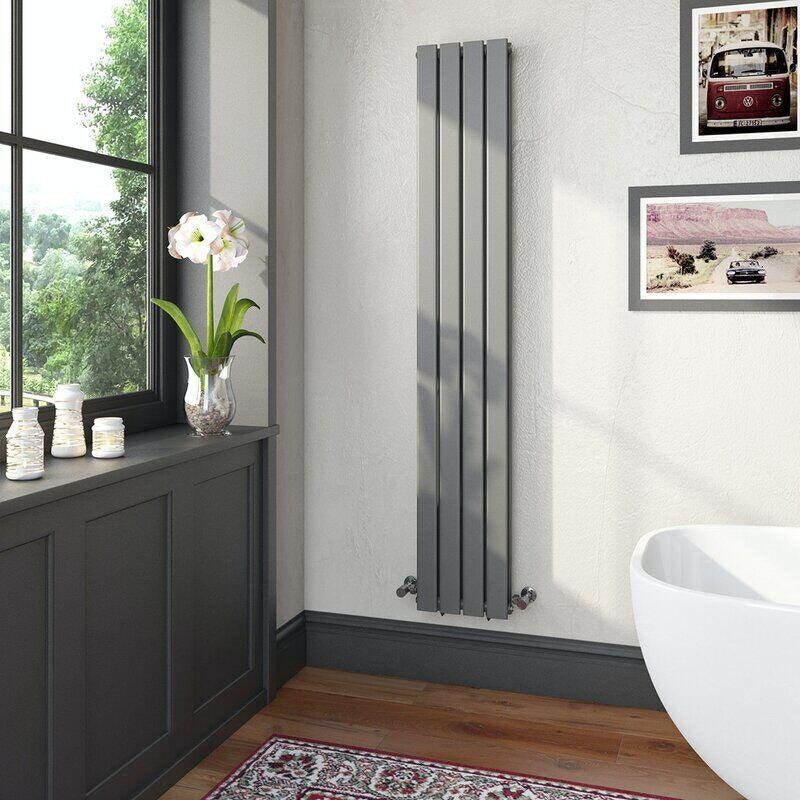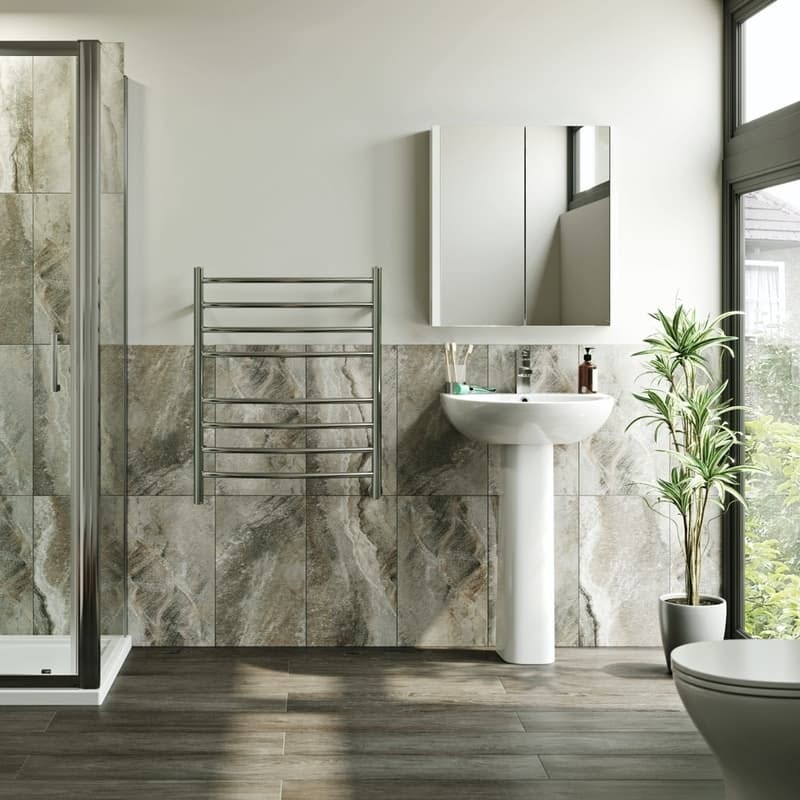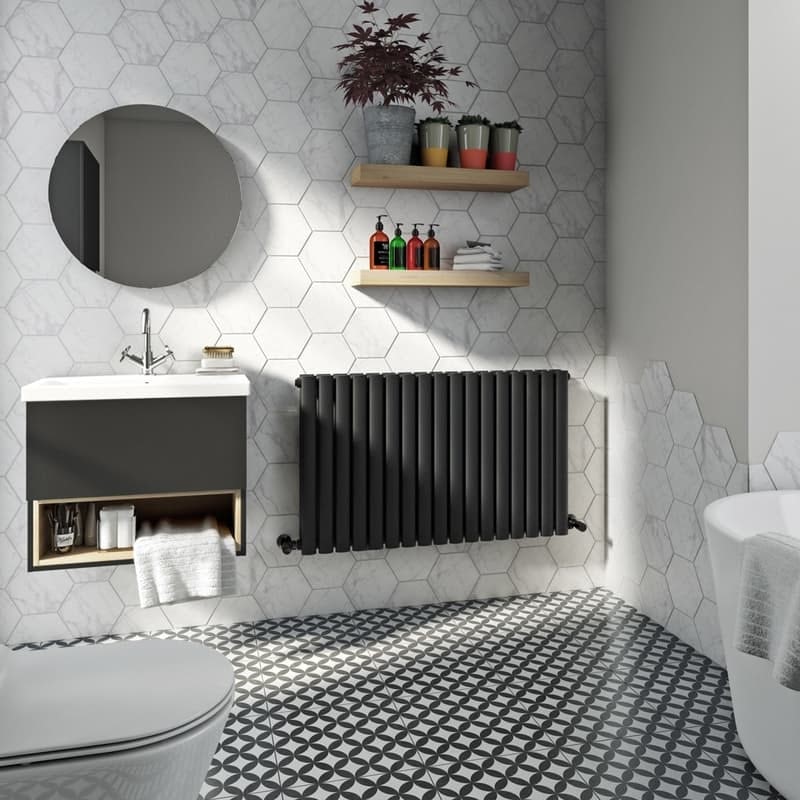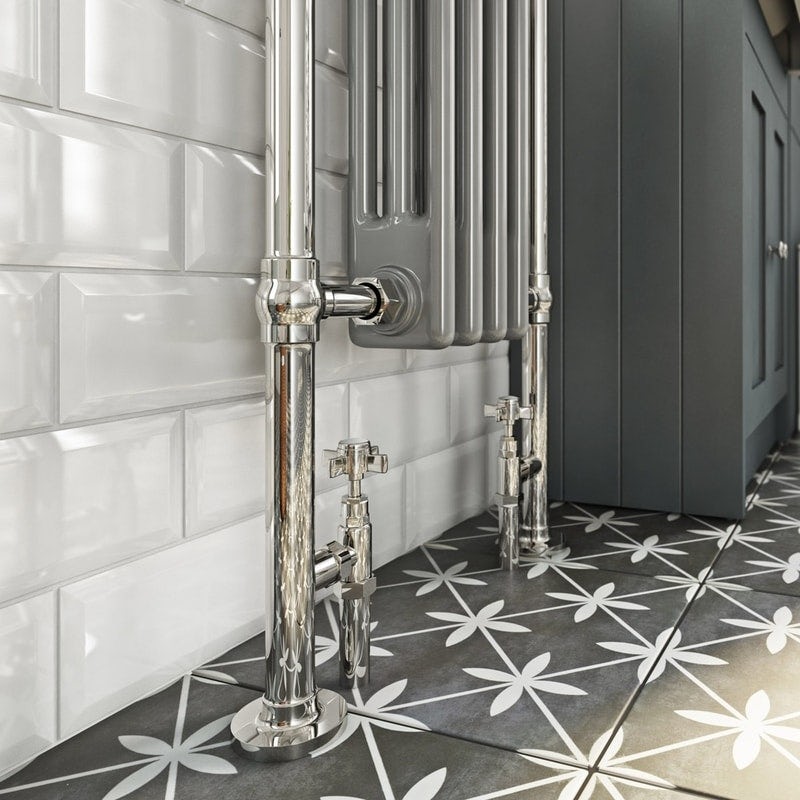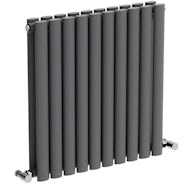There are so many options available to heat your home. But which is best for you? Find out with our in-depth guide.
When you are looking for the best way to heat your home, you'll soon realise that there are many options for home heating systems. It isn't just a matter of choosing a radiator or ductless HVAC (Heating, Ventilation & Air Conditioning) system anymore. There are so many smart features and trendy heating solutions that it can make picking a heating system difficult.
So, which heating system will work best for your home? Our advice is to focus on these 3 factors:
- What heating system will be most effective in your home
- The price of installation
- The cost of running your heating system
In this guide, we'll tell you everything you need to know about today's heating systems. We'll cover the pros and cons of each heating system and the average quotes for installation and running costs.
So, settle in and get ready to find out how to make your home all warm and cosy!
What are the different types of home heating systems?
Choosing the right heating system will ensure efficiency and reduce the energy bills to heat your home. But to make the right decision, you'll want to know all the options available.
Central heating
When it comes to heating systems, the most common form is central heating. Central heating typically uses boilers to heat water that then circulates throughout your home.
Central heating comes in several forms, including gas, electricity or oil. The system that's best for you will depend on the boiler and fuel type that you'll want to use.
Besides the fuel and boiler type, you can also select how you distribute all that heat! Here are just some of the products you can use with your home central heating system:
- Radiators
- Panel heaters
- Convection heaters
- Heated towel rails
- Underfloor heating
Renewable Energy Sources
In addition to central heating, there are also renewable energy options for reducing your carbon footprint. These include:
- Solar energy
- Heat pumps
- Biomass
We will get into the specifics of each central heating and renewable energy option. But first, we wanted to address the options you have for fuel and boilers. As you can mix and match these to meet your needs, let's dive deeper into each heating system to explore your options.
Gas central heating system
Gas central heating is the most commonly used heating system in the UK. And for a good reason!
With over 21 million homes in the UK relying on mains gas, it is a popular system. As long as you are on the grid, the mains gas network provides an affordable and easy way to heat your home.
Homes that rely on mains gas work best with a gas boiler. And thanks to advancements in technology, you can find a gas boiler that is easy to install and can really help reduce your energy bill!
When having gas boilers installed, make sure you stay gas safe. Gas-safe registered installers can ensure your home has protection against leaks and other risks.
How gas central heating works
Gas heating systems work by burning the fuel you get from the mains gas. A gas boiler burns the gas, turning it into energy in the boiler. The burning heats the water and the hot water circulates through your house to heaters.
The heaters used in your home may be radiators, underfloor heating and even heated towel rails in bathrooms.
For houses without mains gas, you can use other systems similar to gas heating systems. You just wouldn't rely on the same national network.
The pros and cons of gas heating systems
Advantages
If you're looking to save money, this is one of the best ways to go! This heating system will keep your heating bills low because of its high efficiency. The fact that the gas supply connects directly to your home also means that you don't have to worry about any storage bills like with some alternatives.
When you need repairs, it is easy to find a gas-safe registered expert for these services. This option could save you time trying to find the right people when something goes wrong.
Disadvantages
Though very cheap to operate, gas heating systems can be expensive to start from scratch. Ensuring correct installation and connection to the mains gas can be an expensive project. Also, it isn't a great option for those who aren't on the mains gas network. It can be much more expensive if you need to supply the gas yourself.
How much does gas central heating cost?
When looking for quotes for a new boiler for a gas heating system, it usually costs anywhere between £500 and £3,000.
This estimate doesn't include the installation cost, which will depend on the boiler you want to install. Some boilers are more time-consuming and complicated to install, and quotes will reflect that.
What affects the price of installation?
The quotes may not cover all the radiators and radiator valves you want to install. Quotes will depend on the size of the property, the boiler model and the heating. For example, deciding between radiator valves vs underfloor heating may make a difference for you when installing your heating system.
While the installation may take a bit of money, the running costs are very low. The heat you get is excellent and heating costs are better. Experts agree that gas is a great way to go for a budget-conscious household.
You will also need to upgrade or install a thermostat. Correctly installed thermostat settings are crucial for controlling your gas boiler. It is especially important if the thermostat is for a boiler that runs on-demand.
Oil central heating
If you aren't on the mains gas network, you'll want to check out oil heating systems. These are highly efficient systems and can allow you to heat your home cheaply. However, make sure you shop around for the highest-grade pieces of equipment. The higher the grade, the more money it will save you in the long run.
You can't use just anything for your oil heating system. It's best to choose an oil that will both work well and not break the bank. Kerosene is a prevalent option because it is cheap and reliable.
How oil central heating works
Whereas the mains gas network will deliver natural gas directly to your boiler, an oil heating system will depend on the oil you supply. It usually means someone delivering it to your house. You will also need a large container for storing the oil.
The pros and cons of oil heating systems
Advantages
With an oil system, you can choose your heating oil. It gives you more choice for saving money! Installation costs are also cheaper than gas systems.
Heating oil burns hotter than natural gas, which makes the boiler more efficient. Heating oil is also safer since it doesn't produce carbon monoxide or explosive gases.
Disadvantages
The fuel efficiency could save you money long-term. However, installation costs, monthly heating oil purchases, and storage can mean you pay more in the long run.
Your oil-fired boiler may also regulate the flow. It means the boiler will heat your household more slowly than a gas system.
How much does oil central heating cost?
Purchasing a low-end oil boiler will cost you about £1,500 in addition to installation costs.
Running costs add up to about £538 annually. This cost will fluctuate significantly from year to year or month to month. That's because heating oil prices depend on stable conditions, and we are running out of fossil fuels.
Political events will also impact these costs. For example, prices for heating oil are the lowest they've been for 3 years due to the Coronavirus pandemic.
Electric central heating
Though you may not have access to the mains gas, almost everyone on the British Isles has access to the electric grid.
Unless you have completely gone off the grid, you are most likely already using electricity throughout your home. And if that's the case, then using electricity for heat is a great option.
Electric heating is as simple as it sounds: electricity only, no gas boiler required!
How electric central heating works
Think of an electric kettle and how it doesn't require fire. Things are the same for heating with electricity in your home. When electricity heats the electric radiators in your home, it doesn't rely on fuel in your boilers like oil or gas. Just as your stove may conduct heat using electricity, so radiators heat up using electricity.
Electric heating also gives you full power for heating controls. Because you aren't reliant on the water, which may heat slowly or unevenly, you decide the exact temperature with your thermostat. The electricity will heat reliably and as you need. No need for tricky radiator valves!
When compared to oil heating, this could save you money in purchasing oil for your boiler. However, it also means your electricity bills could be much higher.
The pros and cons of electric heating systems
Advantages
Instead of using hot water for heat, this depends only on electricity. An electric boiler can also supply your hot water.
Electric heating could save you a lot of money when it comes to installation. You also won't need to purchase and store heating oil or gas for your boiler.
It may be the most affordable option for those in the UK without access to mains gas or cheap heating oil.
Electric heating is also very easy to maintain. Fewer things are likely to go wrong when it's simply a matter of electricity!
Disadvantages
You will need to monitor your energy use. With electricity, your energy bills may skyrocket if not closely observed or kept in check.
While installation quotes are low and maintenance costs have a lower price point, heat from electricity is more expensive than gas.
How much do electric central heating systems cost?
Installation costs for heating from electricity are low, but running costs are higher than other systems. The running cost of electricity can be 4 times the price of gas on average.
If you're using electricity, you will need to pay for all the energy use, just as if you had many things plugged in at once. It can be a lot of money on electricity compared to the price of gas.
You will also need to pay for your electric radiators to heat the air. Then there is the boiler that runs on electricity for getting hot water.
You're also looking at the price of storage heaters. We will explain more about storage heaters in a moment. But overall, you are looking at much higher quotes for your heating bills throughout the year with electricity.
Our advice is to make sure you monitor all things that affect your electricity use. Be careful about the times with Economy 7 and 10 (which we will explain with storage heaters). Invest in the equipment that will keep your yearly costs low. This way, you can enjoy the benefits of this system without breaking the bank!
What are storage heaters?
As electricity can be expensive, it's not wise to run it at all times. Especially here in the UK, you can get your electricity cheaper at certain times during the day.
In the UK, you can purchase storage heaters that use heating bricks. These bricks come with special tariffs. These tariffs include 7 hours at night when your electricity is much cheaper.
The bricks store electricity, which you can use during the day to supply energy to your home.
Brick storage is almost necessary for those interested in electric heating for their homes. These things make this system a much more affordable way of heating.
LPG central heating
Not connected to mains gas but want the gas heating experience? Look no further than LPG heating!
With Liquefied Petroleum Gas (LPG), you can have the gas for your heating system delivered to your door. You can even purchase the fuel from a nearby shop.
LPG lets you have a gas heating system without depending on mains gas for heat. You can remain wholly off-grid and heat things in your home with gas you supply yourself.
How LPG central heating systems work
An LPG system operates exactly like a gas heating system. The difference is that you don't take gas from the main national system.
Similarly to a gas boiler, you use an LPG boiler. You can actually convert a gas boiler to an LPG boiler. However, quotes for these LPG services can be pretty high.
These services aren't too complicated for switching from gas to LPG. However, things go wrong when you don't have the right equipment. Ensure you invest in the right equipment and reach out for help with these services when needed.
The pros and cons of an LPG heating system
Advantages
Do you want to talk about efficiency? LPG is one of the most efficient sources of heat available. If you want bang for your buck, you'll want to heat the things in your home with LPG. And you can easily switch from gas-boilers to LPG. It isn't too complicated to make this transition, however, it can be expensive when not done right.
Disadvantages
Though efficient, LPG is expensive when compared to mains gas. And like oil, prices can fluctuate—something completely out of your control!
You may also have to pay premiums for delivery. Things like weather conditions can make delivery dangerous, leading to additional fees.
How much does LPG central heating cost?
The annual cost of using LPG for heat is about £796. The quotes for installation may vary based on things like what system you are switching from and the size of your home.
Similar to oil heat, you will need to store the fuel for your heating system. Purchasing or renting a tank can be costly, depending on where you purchase it. As the fuel itself is also more costly, all these things add up to being much more expensive than other alternatives.
If you opt for an underground tank, prices will go up even further. So what you could save in fuel efficiency may be outweighed by things like the equipment needed to set up an LPG for heat and hot water.
What are the best fuels to heat my home?
When you have a central heating system, you can decide what fuel sources are best for your home. Here is a quick overview of the fuels available:
LPG (Liquefied Petroleum Gas)
The boilers burn this gas directly. You can use propane or butane typically.
Natural Gas
This option is the mains gas choice. Your boiler burns methane to produce energy.
Oil type C2
Using kerosene, oil type C2 is the cheapest option for heating oil.
Oil type D
Most commonly used for large properties, this is a "gas oil" often used for commercial buildings.
Electric
Rather than heating water or gas, this system runs on electricity. It is very energy efficient but can be expensive, depending on usage.
Biomass
Biomass fuel refers to any biological material such as wood, plants, crops and more. By burning these biological materials, it produces energy without using fossil fuels.
Depending on the system you choose, the boilers and fuel type, you can best determine which fuel is right for you.
What are the different kinds of boilers?
If you depend on central heating for your heating system, you'll probably need at least 1 boiler.
Boilers work by heating water, which then circulates through your home. Depending on your boiler and heating system, this may provide your heating and hot water. Others may only produce hot air for your home.
These are the top 3 boilers that we recommend for your home:
Combi boilers
The most commonly-installed boiler in small to medium-sized homes in the UK is the combi boiler. This unit only heats water on demand, making it energy efficient and keeping energy costs down. They are also smaller, so they require less space. However, they aren't ideal for large homes.
Combi boilers get their name because they combine 2 functions: heating and hot water for your home. This combination makes it even more energy efficient!
System boiler
Like combi boilers, system boilers also heat natural gas directly from the mains. However, when comparing quotes for boiler prices, you'll see that a system boiler is often more expensive.
Regular or conventional boilers
Once the standard for boilers, these units still exist in many older homes. The downside is that the water system works on gravity. It means that it does not heat on demand and is, therefore, less efficient. A conventional boiler means higher bills than with a combi.
Renewable energy sources to heat your home
If you would like to avoid using fossil fuels to heat your home, you have several renewable energy options. Using a renewable energy source is an excellent way of heating your home while reducing your carbon footprint.
Biomass central heating systems
Biomass refers to biological, natural things such as wood, plants, crops and more. These things are available anywhere, which makes things simple. Wood is one of the most common fuels used for biomass.
Biomass boilers do take up a lot of space, but use the greenest form of fuel.
Ground source heat pumps
Heat pumps circulate water and antifreeze, using underground geothermal properties that deliver heat to the pipes.
Heat pumps are extremely green as they rely on nothing but the geothermal energy to run the heat pump.
A heat pump can work all year, no matter how cold it is outside; things remain relatively warm in the earth. You can also install ground source heat pumps. They not only provide heat, but the heat pump can be used to produce hot water as well!
Air source heat pumps
An air-source heat pump extracts heat from the air to produce energy. Similar to how a refrigerator works, the air source heat pump can electrically pull heat from the air and deliver it to your home.
Though it may seem unlikely, air-source heat pumps work in winter as well. By installing an air source heat pump, you can reduce your use of fossil fuels. Like a ground source heat pump, they also provide hot water.
Solar energy
Contrary to popular belief, the UK is sunny enough to give you solar energy for your home. Quotes for solar panels usually range from about £3,500-£7,500. They may be expensive to install but could save you money on electricity.
Passive solar energy
Passive solar energy uses the sunlight that passes through your windows for heating the air in your home. The warm energy heats the air, making this a free way of heating homes! Rather than keep your windows shut up during the day, make sure you open them to get more of the free air and solar heating.
This system is unlikely to work exclusively on its own during the coldest months. But with another renewable energy source, it's great for additional heat.
The pros and cons of renewable energy
Advantages
Go green! Fossil fuels, oil, and gases: these things won't last forever. You can do your part by using green technology to heat your home and power the things you love.
Disadvantages
Renewable energy sources are plentiful, but getting the necessary technology can be expensive. Our advice is to do your research. Make sure you are getting all the things you need to make a smooth transition. Hire knowledgeable professionals. Purchase equipment that will last.
Conclusion: The best heating system for your home
Heating your home is one of the most important things. We go home for warmth, safety and happiness. It's hard to find all of that when you're cold!
Don't just take your heating system and heating bills without questioning them. Our advice is to find the system, the fuel, the boiler or the renewable resources that will power your home efficiently. Things don't have to be expensive when you make the best decision for your home.
The cheapest option is usually a gas central heating system that relies on mains gas in the UK. But this isn't always possible when you're not on the grid. So, use this guide to make the best choice for your home!
Further heating advice for your home
At Victoria Plum, we’re here to answer all those burning questions you have about heating. Whether you’re asking if a radiator is hard to fit or finding out if radiator size really does matter, we’ve used our years of expertise to give you a considered opinion.
If you’re confident and experienced in DIY, we also have a range of installation guides for various heating products, plus practical tips on decorating and working out the BTU output for your specific room. Head to our advice blog section to find out everything you’ll ever need to know.
Shop heating for your whole home
From heated towel rails to radiators, and from underfloor heating to valves, at Victoria Plum you’ll find the perfect heating product for any room in your home. Specialising in bathrooms and kitchens, we offer a comprehensive range of styles, colours and designs in a variety of sizes to meet your requirements. Simply click on the image below to begin browsing.

